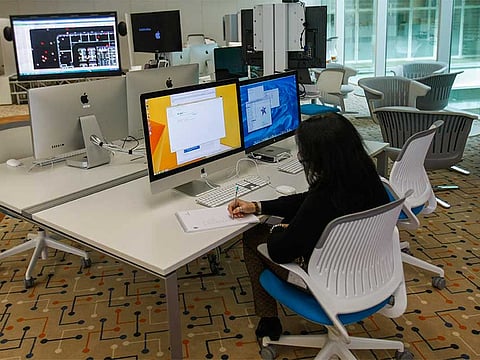UAE ranks 23rd in the world for network readiness
Government’s vision to drive ICT development hailed

Dubai: The UAE moved one position up in network readiness index (NRI) and leads the ladder in the Gulf rankings due to the government’s continued vision to drive the development of information and communication technology (ICT) decisively and to expand it to all segments of the economy and society.
NRI, produced by the World Economic Forum in cooperation with Insead annually, measures the preparedness of an economy to use ICT to boost competitiveness and well-being and tracks the development of ICTs around the world.
The report assesses the digital ecosystems of 143 developed and developing countries — accounting for more than 98 per cent of the world’s GDP.
The report ranks three Gulf countries in the top 30 list globally for the third consecutive year, and another two in the top 45 — UAE (23), Qatar (27), Bahrain (30), Saudi Arabia (35) and Oman (42).
Bruno Lanvin, co-editor of the report and executive director of Global Indices at Insead, said that the Gulf rankings demonstrate that they [Gulf countries] continue to embrace ICT to boost their national competitiveness.
In contrast, he said that countries in the Levant and North Africa still lag behind and face challenges to fully leverage ICT, including Morocco (78), Egypt (94), Lebanon (99) and Algeria (120).
‘The UAE continues to play the role of regional leader and spectacular progress has been made in both in the environment pillar (business climate and regulatory environment in particular) as well as on the usage front (in which business innovation capacities have improved significantly),” he said.
The UAE is also a typical example of how the growth of talents and skills is key to improving competitiveness, he added.
“Overall, UAE has achieved improved footing in seven of the ten sub-indices contributing to NRI rankings. However, UAE needs to continue on this positive trajectory to climb the ranks and lead among global ICT player,” said Milind Singh, principal with Strategy&, formerly Booz & Company.
Lanvin said that ICTs hold the potential of transforming economies and societies. They can help address some of the most “pressing issues” of our time and support inclusive growth.
“Growing inequalities are threatening the power of ICT to be a global engine for inclusive growth. The Mena region is a perfect illustration of this phenomenon, where the continued progress made by Gulf countries is in stark contrast with the stagnation faced by Levant and North African countries,” he said.


